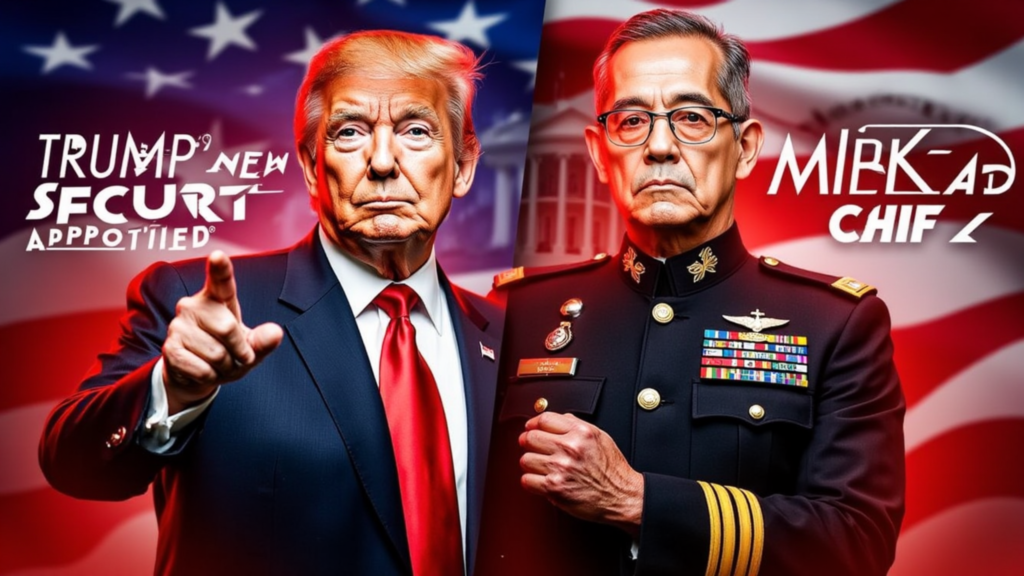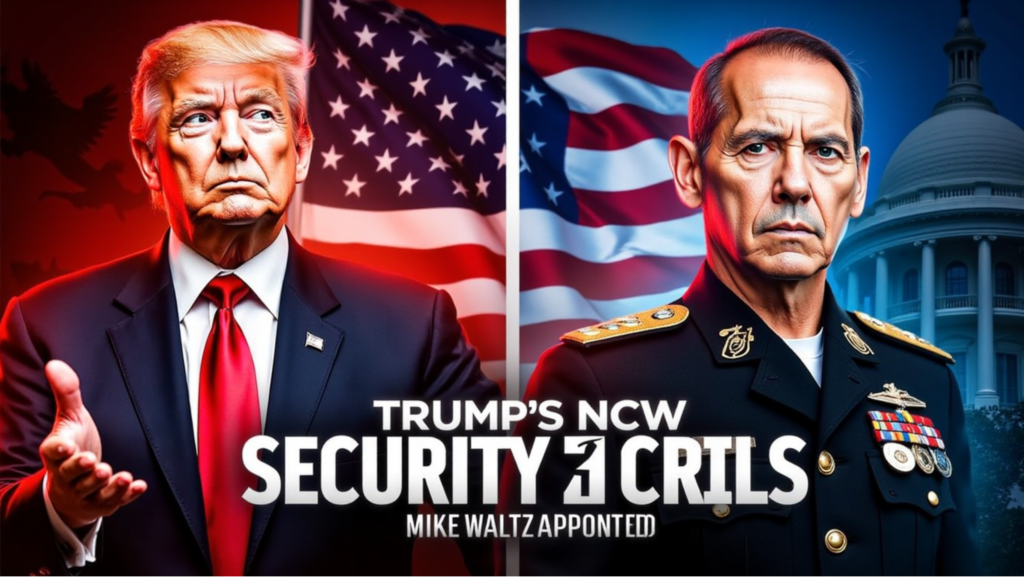The decision to appoint Rep. Mike Waltz (R-FL) as National Security Adviser for former President Donald Trump marked the completion of an epoch-making step in the historical change awaiting this country’s security landscape. The mention of this piece would come in November 2024, when national and international security challenges confronting the United States are becoming increasingly complex. This will be one of the most fundamental decisions that will affect U.S. foreign policy, military strategy, and international relations.
Who is Mike Waltz?
Mike Waltz is a seasoned veteran Green Beret and decorated combat veteran; thus, he brings tremendous experience to the role of National Security Adviser. Mike was elected in 2018 and recently became known as a strong supporter of national defense and military readiness. He served with the Army Special Forces on two tours: one in Iraq and another in Afghanistan.
Before entering into the political arena, Waltz worked in the Pentagon senior ranks, in policy relating to counterterrorism strategy, and as an adviser to military leaders. His depth of knowledge pertaining to military operations, intelligence gathering, and experience in countering terrorism places him well in the line for the most important office of National Security Adviser.
Waltz Selection: Mike Waltz, himself a combat veteran and former member of the House Armed Services Committee, will still be interested in strong national security through a leadership team with both a clear military as well as a policy understanding. He has already had experience in the House Armed Services Committee as well as loud views in the support of a more powerful military defense, making him ideal for the position.
Key focus areas for Mike Waltz
Going by the issues a National Security Adviser is going to face in his discharge of duties, several of these are bound to be aggressively key issues of concern while others may require strategic approaches. Key among the primary focus areas for Mike Waltz will involve the following:
1. U.S.-China Relations
probably no relationship has greater implications for this century’s future than that of the United States and China. China is rapidly modernizing its military capabilities; it has become increasingly assertive in the South China Sea; and the state of affairs has indeed given U.S. policymakers a plethora of headaches. Waltz, one of the toughest critics of the rising tide of China’s influence, will likely vociferously address problems such as trade imbalances, human rights violations, and military threats in the region of the Indo-Pacific.
He has said that his focus is on the need to balance China’s accelerating rise in influence throughout the world. As National Security Adviser, he will work toward an integrated strategy in which U.S. alliances in Asia should be more deeply implanted, especially in Japan, South Korea, and Taiwan, and prevent Chinese aggression.
2. War on Terror and Counter-Terrorism Strategy
Having been a former Special Forces operative, Mike Waltz has an experience in the war on terror up front. However, taking away the impact of a group such as ISIS and al-Qaeda, U.S. itself has made much progress, yet the fact remains that terrorism remains one of the sticky challenges ahead. Long experience in counterterrorist tactics and work experience in Afghanistan might make Waltz more aggressive in fighting global terrorist networks, especially those in the Middle East and North Africa.
His policy may also involve developing stronger intelligence-sharing with international partners and enhancing coordination between military and intelligence agencies to prevent future attacks proactive.
3. Cybersecurity and National Defense
This, therefore, will top his list of priorities: protection of infrastructure and government systems from cyberattacks. Waltz finds better cyber attacks nature-why the systems he is sure will continue rising. He has experienced US Congressional advocacy for the strengthening of the US cybersecurity posture. He might also push for higher spending on digital defense technologies and ties with the private sector to protect him and other government leaders against hacker- and state-sponsored cyber attacks.
As Russia and China continue to pour lots of money into cyber capabilities, Waltz will probably lead the U.S. efforts in fortifying its defenses against malicious cyber acts against public and private organizations.
Indeed, the conflict in Ukraine and Russian military builds up in Eastern Europe do not alleviate the tension between the U.S. and Russia. In fact, Waltz cannot but vigorously protest against the Russian policy of opposing alleged interference in the United States and its military actions in Europe.
Expect Waltz to persist in advocating for stringent measures against Russian institutions and keep on urging the building up of defense capabilities at NATO, militarily always ready at all times to be employed in any geopolitical moves to Russia.
- Build Military Alliances
Waltz’s military experience would form the core of focus in his national security agenda, which will focus on strengthening U.S. alliances around the world. This includes further cooperation with key NATO members and regional partners such as Israel, Japan, and South Korea. Modernization moves on U.S. forces are also likely to come into play-the military must keep itself ready for the future.
Trump’s Plan: Return to a “Peace Through Strength” Policy
Indeed, his plan to appoint Mike Waltz as congressman would denote that the true agenda of Donald Trump is to go back to what would be so-called “peace through strength” policy; that is to say maintaining a huge military force across the world and dealing the opponents in a head-to-head manner. That had always been the standard of Trump’s foreign policy in the past.
The appointment of Waltz also suggests that Trump would prefer substantial, seasoned, and strong military leadership in the National Security Council; security and defense issues would obviously feature at the core of his administration’s agenda. These developments in the world of geopolitics and the emergence of new challenges, from an assertive Chinese power and resurgent Russia to continued cyber threats and the ongoing war on terror, might only be what America needs: new chapters for national security leadership.
Conclusion: New Chapters for National Security Leadership
Continuing to confirm Mike Waltz as the National Security Adviser, further underlines strategic thinking-one of the integral elements forming the self-evolution of Trump’s stronger, more proactive national defense policy. A veteran who has seen everything firsthand, Waltz boasts firsthand knowledge of the details of the world security dynamics, and, admitted unabashed direct and unyielding combatant against adversaries-now positions himself to play a critical role in the future of U.S. security policy.
Under this administration, Waltz, as National Security Adviser, will face some of the toughest tasks-from dealing with the global advancement of regimes around the world to cyber threats and the many continuing military disputes. His leadership will surely be tested, though, as America tries to navigate through a changing landscape around the world order. But with his background and experience, Waltz will bring the very disciplined and security-focused National Security Council for America into always staying vigilant, strong, and prepared for whatever may hit its shores.



